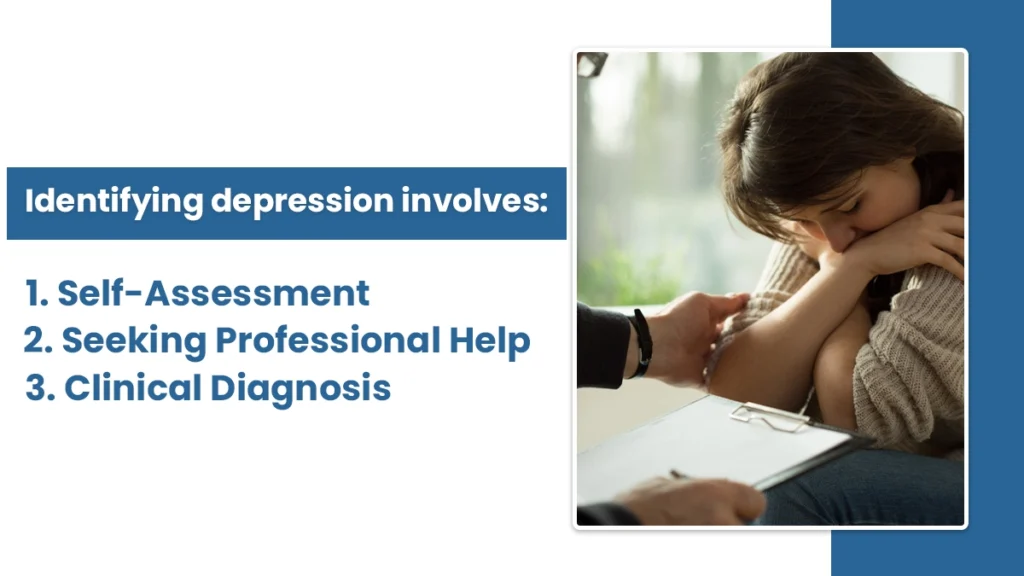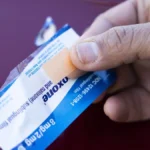Depression is persistent sadness and disinterest in activities, often accompanied by changes in sleep, appetite, and energy levels.
This article aims to help you identify potential signs of depression. Continue reading to reflect on your emotions and behaviors, guiding you toward your mental wellness.
Key Takeaways
Depression manifests through emotional, physical, and cognitive symptoms. Here’s what you need to know:
- Origins of depression are multifaceted, influenced by genetic, environmental, and psychological factors.
- Identifying depression involves self-assessment, seeking professional help, and clinical diagnosis.
- Support systems, alternative therapies, and coping mechanisms are essential in managing depression.
The Haven Detox-Little Rock offers a supportive environment for individuals seeking comprehensive care and recovery from mental health challenges. Call us at (501) 271-3342 and establish a solid groundwork for enduring recovery.
Defining Depression
Depression is marked by constant feelings of sadness, hopelessness, and a pervasive lack of interest or pleasure in daily activities. It is a treatable health concern that requires careful intervention, impacting overall well-being.
Types of Depression
Depression is prevalent and one of the most common mental health disorders. There are multiple types of depression, each with unique characteristics. Major depressive disorder (MDD) involves severe symptoms lasting at least two weeks. Persistent depressive disorder (PDD) entails chronic low-level depression for two years or more. Bipolar disorder includes periods of depression alternating with manic or hypomanic episodes.
Symptoms of Depression
Depression manifests through emotional, physical, and cognitive symptoms.
Emotional Symptoms: Pervasive sadness or emptiness, loss of interest or fun in activities, and feelings of guilt or worthlessness are common emotional symptoms of depression.
Physical Symptoms: Changes in appetite or weight, sleep disturbances, and fatigue or lack of energy are physical manifestations of depression that impact daily functioning.
Cognitive Symptoms: Difficulty concentrating or making decisions and recurrent thoughts of death or suicide represent mental challenges associated with depression.
Causes of Depression
Depression’s origins are multifaceted, influenced by genetic, environmental, and psychological factors.
Genetic Factors: A family record of depression can raise the risk, suggesting a genetic predisposition that may be inherited.
Environmental Factors: Stressful life events, trauma, or significant losses contribute to depression development. Adverse childhood incidents can also play a role.
Psychological and Personal Factors: Low self-esteem, a history of abuse, or certain personality traits may contribute to an individual’s vulnerability to depression.
Link Between Depression and Other Health Problems
Depression often coexists with other health issues, impacting overall well-being.
Depression and Anxiety Disorders: Anxiety disorders frequently accompany depression, intensifying emotional challenges and complicating treatment approaches.
Depression and Substance Abuse: Substance abuse can be both a cause and an effect of depression, forming a destructive cycle that requires specialized intervention.
Depression and Physical Health: Depression may worsen physical health conditions and vice versa, emphasizing the mind-body connection. Chronic illnesses and inflammatory states may contribute to the development of depressive symptoms.

Diagnosing Depression
Identifying depression involves self-assessment, seeking professional help, and clinical diagnosis.
Self-Assessment: Reflecting on emotional well-being and recognizing persistent symptoms is a crucial initial step. Individuals can use self-assessment tools or questionnaires to evaluate their mental health to improve.
Seeking Professional Help: Consulting mental health professionals, such as therapists or psychiatrists, provides valuable support in navigating the complexities of depression.
Clinical Diagnosis: A comprehensive evaluation by a healthcare professional, including a thorough medical and psychological assessment, is essential for an accurate diagnosis. It may involve discussions about symptoms, family history, and lifestyle factors.
How Depression is Treated
Various treatment options, often used in combination, aim to alleviate depression and improve overall well-being.
Medication Treatments
Antidepressant pills, such as selective serotonin reuptake inhibitors (SSRIs) or serotonin-norepinephrine reuptake inhibitors (SNRIs), can help regulate neurotransmitters and improve mood. It’s vital to note that medication is not a one-size-fits-all solution, and finding the proper medication may require trial and error.
Psychotherapy and Counseling
Therapeutic approaches, including cognitive behavioral therapy (CBT), help individuals cope with their thoughts and emotions. Therapy sessions provide a safe space for exploring underlying issues contributing to depression.
Lifestyle Changes and Self-Care
Incorporating lifestyle changes is crucial for holistic well-being. Regular exercise, a balanced diet, sufficient sleep, and stress management contribute to overall mental health. Activities that bring joy and purpose can also play a significant role in recovery.
Dealing With Depression: A Guide
Support systems, alternative therapies, and coping mechanisms are essential in managing depression.
Support Systems and Mental Health Networks: Building a robust support system, including friends, family, and mental health networks, provides crucial assistance. Peer support groups and online communities offer shared experiences and understanding.
Alternative Therapies for Depression: Mind-body practices like yoga, mindfulness meditation, and art therapy can complement traditional treatments. These approaches focus on the connection between the mind and body, promoting relaxation and self-expression.
Coping Mechanisms and Stress Management: Developing healthy coping mechanisms and effective stress management strategies enhances resilience. Journaling, deep breathing exercises, and setting realistic goals are practical ways to cope with the challenges of depression.
When to Seek Help
Professional assistance is vital when emotions interfere with work, relationships, or personal well-being.
- Persistent Symptoms: If feelings of sadness, hopelessness, or worthlessness persist for more than two weeks.
- Impact on Daily Life: When depression interferes with daily activities, work, or relationships.
- Physical Symptoms: If physical symptoms like changes in sleep, appetite, or energy levels become noticeable.
- Isolation: Withdrawal from social activities or losing interest in things once enjoyed.
- Thoughts of Self-Harm: Any ideas of self-harm or suicide demand immediate attention.
- Lack of Improvement: If efforts to cope or self-care aren’t improving your mental health.
- Supportive Encouragement: When friends or family express concern, indicating an external perspective on changes in behavior or mood.
Timely intervention can significantly improve the outlook for recovery and overall mental well-being.
Frequently Asked Questions (FAQ)
What are the top three symptoms of depression?
Depression symptoms vary, but the three top signs include continuous feelings of sadness, changes in sleep patterns, and a loss of interest in activities. In severe depression, these symptoms intensify, impacting a person’s ability to function.
While young people may experience mood swings, it’s crucial to distinguish normal fluctuations from mental health conditions. Seeking medical help is essential for an accurate diagnosis. Effective treatments, like therapy with a psychologist or medication, can alleviate symptoms.
The good news is that recovery is possible, and understanding depression as a medical condition helps reduce stigma. If you or others exhibit symptoms, especially after a traumatic event, consult a healthcare professional in the United States for guidance.
How do I know if I am depressed or just sad and worried?
How can you differentiate between feeling sad, worried, or experiencing clinical depression? It’s crucial to note that everyone sometimes feels down, but persistent sadness, hopelessness, and disinterest may indicate more than a passing mood. If these emotions interfere with daily life and last for an extended period, consult a healthcare provider.
Clinical depression, or major depression, requires professional evaluation. Various tests, including those for substance use disorders, help determine the appropriate diagnosis.
Cognitive behavioral therapy and antidepressant medication are common treatments. Watch for symptoms, especially in young and older adults, who may be at higher risk.
If you or a family member experiences suicidal thoughts, seek immediate help. Seasonal affective disorder and manic depression are different types of depression that also require your attention. For additional resources and information, consult your doctor.
The Haven Detox-Little Rock: Step Towards Mental Wellness
At The Haven Detox-Little Rock, we approach mental health challenges with compassion and expertise.
Our residential treatment provides a supportive environment for recovery, emphasizing therapy and counseling. With mental health treatment, our experts delve into the root of mental health issues, offering personalized strategies and combining innovative approaches, ensuring a holistic recovery. Step up towards better mental health. Call us at (501) 271-3342 to begin your journey to well-being.





